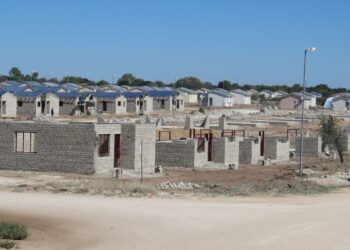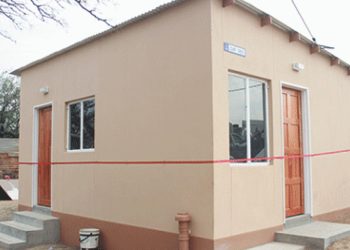
The Construction Industries Federation of Namibia (CIF) has expressed concern over the government’s lack of support for local companies.
This comes as Namibian-owned construction companies are struggling to compete against established foreign firms in the acquisition of major tenders at a time the government’s financial capacity is constrained.
Barbel Kirchner, the CIF Chief Executive Officer, said the competition to tender for projects was at an all-time high in 2022 due to the government’s inability to stimulate the economy by ploughing money into capital projects.
“This is despite the fact that it appears that the Government is unlikely to be able to finance large scale infrastructure developments and capital projects unless it will have continued access to grants and loans, also considering the development budgets of previous years,” she said.
Kirchner noted that Namibia’s development budget was reduced by 10% for the fiscal year 2022/2023, totaling N$4.9 billion, compared to N$5.5 billion the previous year.
The CIF head indicated that the government’s support of Namibian-owned businesses could have a catalytic effect on the Namibian economy as a whole.
“We are very hopeful that this year we will see a drastic change in the way our Namibian-owned contractors are being supported. We feel that our continued call for many, many years to support our local contractors large and small is starting to resonate. I think that we are all aware of the importance of it “, says Kirchner.
Although the CIF proposes greater support for local businesses, it also supports the notion of creating the ultimate investor-friendly environment, as domestic and foreign investments are also key to stimulating the economy.
“Seriously, there is a lot to gain if every politician, every government authority at all levels of government, all senior executives and their teams, especially all procurement specialists who have Namibia’s interests at heart, will contribute to a focused effort to get our local construction sector going again, this is ultimately in the interest of all of us.”
Kirchner said a focus on engaging local-owned businesses, much-needed jobs are being created and ensures that money stays in the country.
“We must remember that every job leads to the creation of other jobs and that essentially it can have a snowball effect, where everyone gains. Engaging foreign businesses, where we have ample local capacity is in total contradiction to our nation’s quest of achieving empowerment, equality, and prosperity. We believe that this awareness will bring us forward,” she said.
She, however, added that this does not imply that Namibia needs to close borders, but rather there must be opportunities for everyone to be involved in the sector, “where the foreign does not suffocate the local, and where the big does not suffocate the smallâ€.
“To maintain and continue to build our local capacities, we need a balanced approach. The conditions need to be optimal. The ease of doing business is an important factor, which is largely determined by the amount of red tape and administrative requirements. At the same time, the overall policy environment must radiate certainty for the potential investor,” she added.











